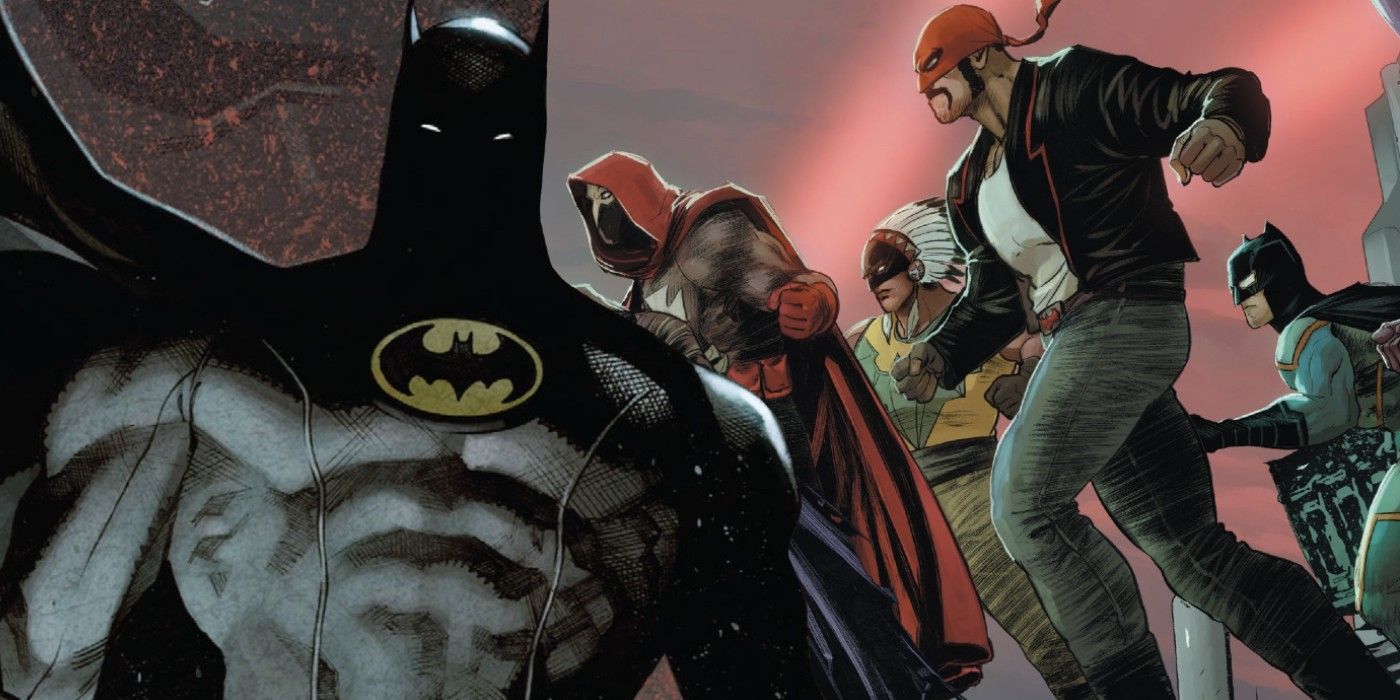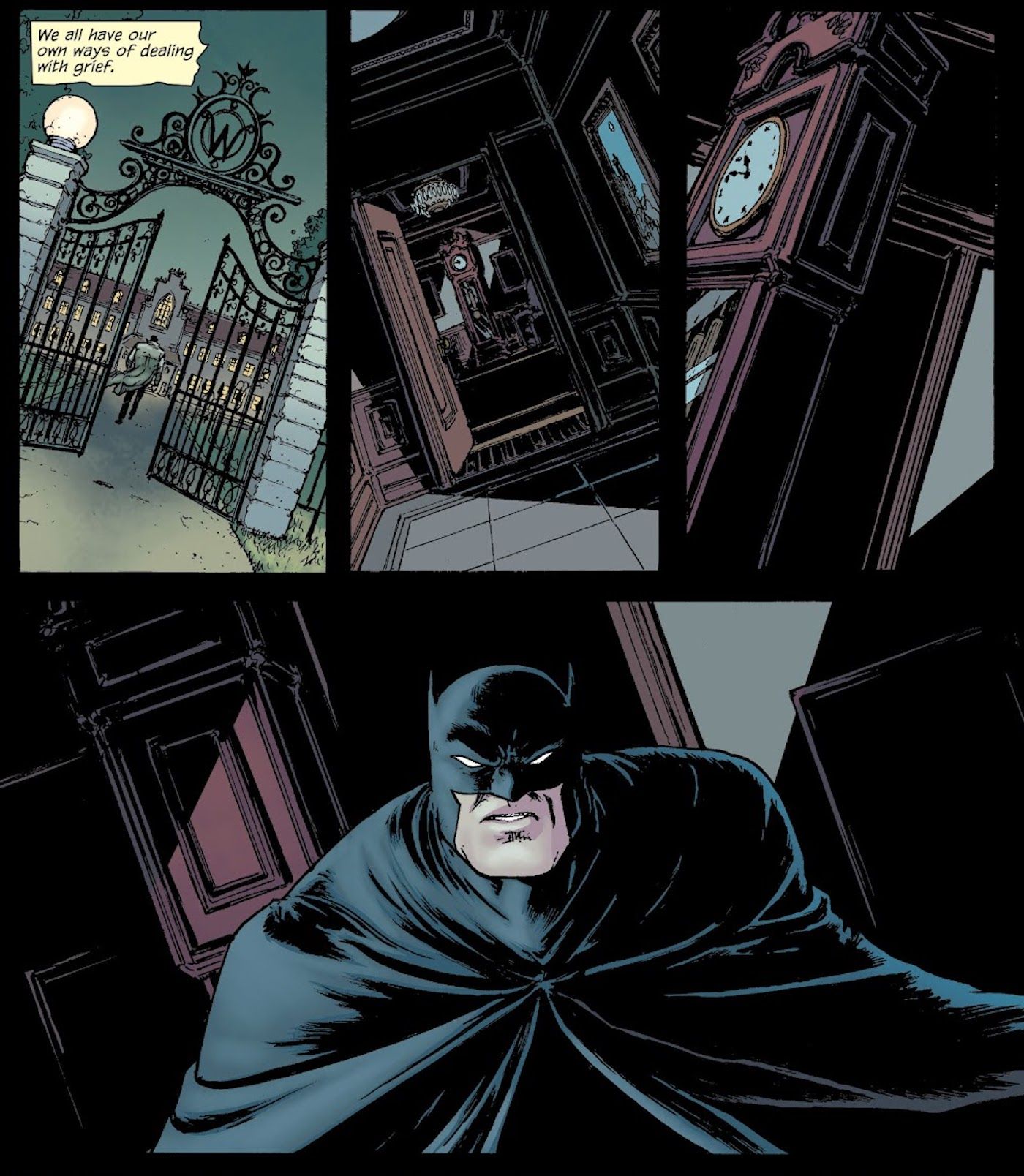Throughout Batman’s history, Bruce Wayne has been defined by the loss of his parents, but the series Batman Incorporated by Grant Morrison demonstrates that Batman’s experience with grief is what makes him relatable. Batman’s grief isn’t something unique and fictional, it’s very human and real. It’s something he carries with him, and something that readers carry with themselves too.
Released over two volumes between 2010 and 2013, Batman Incorporated sees Batman branching out of Gotham City, tasking heroes new and old with becoming their countries' own national Batmen. The first volume in particular deals with these various heroes’ origins, and details some of the struggles that not only lead them towards crimefighting, but toward becoming Batmen. But by the series’ conclusion, Batman has suffered his own terrible loss, that of his son, Damian Wayne. As these characters find the motivation toward heroism in their own losses, readers can understand that that the emotional struggles felt by Batman are more universal than is sometimes suggested in the comics.
Batman Incorporated shows that Batman is so universal because everyone experiences grief and can relate to it. In the context of Batman Incorporated, this results in joining the fight against super-crime, but the emotional core of the series is one everyone knows. While we might not have Batman with us to channel our own feelings into a dedication to crimefighting, we can still understand that these experiences shape us and that there’s bravery in finding the strength to work through loss and trauma however we can.
The first issue of Batman Incorporated volume 1 by Morrison and Yanick Paquette demonstrates this theme through Jiro Osamu, the future Batman of Japan. After the murder of his mentor, the crimefighter Mr. Unknown, Jiro’s initial instinct is to exact vengeance on the villainous Lord Death Man. However, Batman understands all too well where that path can lead, and Jiro is luckily able to live up to the ideal of both Bruce Wayne and Mr. Unknown in refusing to kill his foe. Batman is able to channel Jiro’s rage toward heroism and help him overcome it. He understands what Jiro’s feeling because it’s universal.
The conclusion of Batman Incorporated only makes the theme of loss that much more poignant. In Batman Incorporated volume 2 #8 by Grant Morrison and Chris Burnham, Damian Wayne is killed by his own clone. This devastates Bruce, who spirals and is only helped by his extended Bat-Family. Throughout Morrison’s run on Batman, Bruce ruminates again and again on “the hole in everything” that he feels in his life. In Batman Incorporated #13, Morrison’s finale, Bruce diagnoses this hole as how he felt after his parent’s death and how he now feels after Damian’s death. The hole is his grief, and it has never left him. This again shows Batman to be a universal hero because he embodies the idea that grief isn’t something that leaves you, it’s something everyone carries with them.
As Bruce Wayne muses in issue #13, perhaps Batman will never die, but that just means he has to keep on going, carrying his grief and loss alongside him. In the end, this acceptance by Batman is something readers can relate to and learn themselves—to accept that whatever we’re feeling might never fully fade, but we need to keep going regardless. If we’re to take anything from Grant Morrison's Batman Incorporated it’s that we can each be our own Batman, being strong when we can, and trusting in our own Bat-Families to help us along when we can’t.


